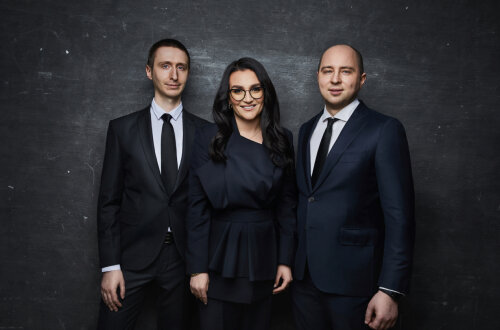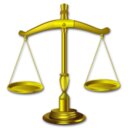Best Whistleblower & Qui Tam Lawyers in Republic of Lithuania
Share your needs with us, get contacted by law firms.
Free. Takes 2 min.
Or refine your search by selecting a city:
List of the best lawyers in Republic of Lithuania
About Whistleblower & Qui Tam Law in Republic of Lithuania
Whistleblower & Qui Tam laws in the Republic of Lithuania are designed to protect individuals who report fraud, waste, or abuse in government programs or within their organizations. These laws provide legal mechanisms for whistleblowers to come forward while offering protections against retaliation.
Why You May Need a Lawyer
You may need a lawyer for Whistleblower & Qui Tam cases if you have evidence of fraud, waste, or abuse and are considering reporting it. A lawyer can help you navigate the legal process, understand your rights, and protect you against retaliation from your employer or other parties involved.
Local Laws Overview
In Lithuania, the Law on Protected Reporting provides legal protection for whistleblowers who report violations of law in the public sector or in private companies. Whistleblowers are shielded from retaliation and have the right to compensation if they suffer damages as a result of their reporting.
Frequently Asked Questions
1. What is Qui Tam litigation?
Qui Tam litigation allows private individuals to file lawsuits on behalf of the government seeking to recover funds lost to fraud or abuse.
2. Is there a statute of limitations for whistleblowing claims in Lithuania?
Yes, in Lithuania, whistleblowers typically have two years from the date they became aware of the violation to report it.
3. Can I remain anonymous when reporting fraud?
Yes, the law in Lithuania allows whistleblowers to report fraud anonymously, although it may limit the effectiveness of the investigation.
4. What protections are available for whistleblowers in Lithuania?
Whistleblowers in Lithuania are protected from retaliation, including termination, demotion, or other adverse actions, and may receive compensation if they suffer damages as a result of their reporting.
5. How do I report fraud in Lithuania?
Whistleblowers can report fraud to the State Tax Inspectorate, the Financial Crime Investigation Service, or other relevant authorities.
6. Can I receive a reward for reporting fraud in Lithuania?
Yes, whistleblowers in Lithuania may be eligible for a reward if their report leads to the recovery of funds lost to fraud.
7. What evidence do I need to report fraud?
It is helpful to have documentation or other evidence to support your report of fraud, but it is not always required.
8. How can a lawyer help me with a Whistleblower or Qui Tam case?
A lawyer can help you understand your rights as a whistleblower, guide you through the reporting process, and represent you in any legal proceedings that may arise.
9. How long does it take for a Whistleblower or Qui Tam case to be resolved?
The timeline for resolving Whistleblower or Qui Tam cases can vary depending on the complexity of the case and other factors. It is best to consult with a lawyer for a more accurate estimate.
10. Are there any risks to being a whistleblower in Lithuania?
While there are protections in place for whistleblowers in Lithuania, there is always a risk of retaliation or other negative consequences for coming forward. A lawyer can help you navigate these risks and protect your rights.
Additional Resources
For more information on Whistleblower & Qui Tam laws in Lithuania, you can contact the State Tax Inspectorate, the Financial Crime Investigation Service, or the Lithuanian Whistleblowers Association.
Next Steps
If you believe you have information regarding fraud, waste, or abuse and are considering blowing the whistle, it is recommended to seek legal advice from a qualified attorney experienced in Whistleblower & Qui Tam cases in Lithuania. A lawyer can help you understand your rights, protect you from retaliation, and guide you through the reporting process.
Lawzana helps you find the best lawyers and law firms in Republic of Lithuania through a curated and pre-screened list of qualified legal professionals. Our platform offers rankings and detailed profiles of attorneys and law firms, allowing you to compare based on practice areas, including Whistleblower & Qui Tam, experience, and client feedback.
Each profile includes a description of the firm's areas of practice, client reviews, team members and partners, year of establishment, spoken languages, office locations, contact information, social media presence, and any published articles or resources. Most firms on our platform speak English and are experienced in both local and international legal matters.
Get a quote from top-rated law firms in Republic of Lithuania — quickly, securely, and without unnecessary hassle.
Disclaimer:
The information provided on this page is for general informational purposes only and does not constitute legal advice. While we strive to ensure the accuracy and relevance of the content, legal information may change over time, and interpretations of the law can vary. You should always consult with a qualified legal professional for advice specific to your situation.
We disclaim all liability for actions taken or not taken based on the content of this page. If you believe any information is incorrect or outdated, please contact us, and we will review and update it where appropriate.
Browse whistleblower & qui tam law firms by city in Republic of Lithuania
Refine your search by selecting a city.
















